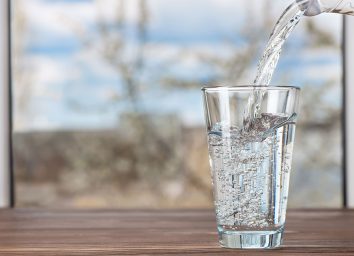What Happens to Your Body When You Drink 8 Glasses of Water a Day
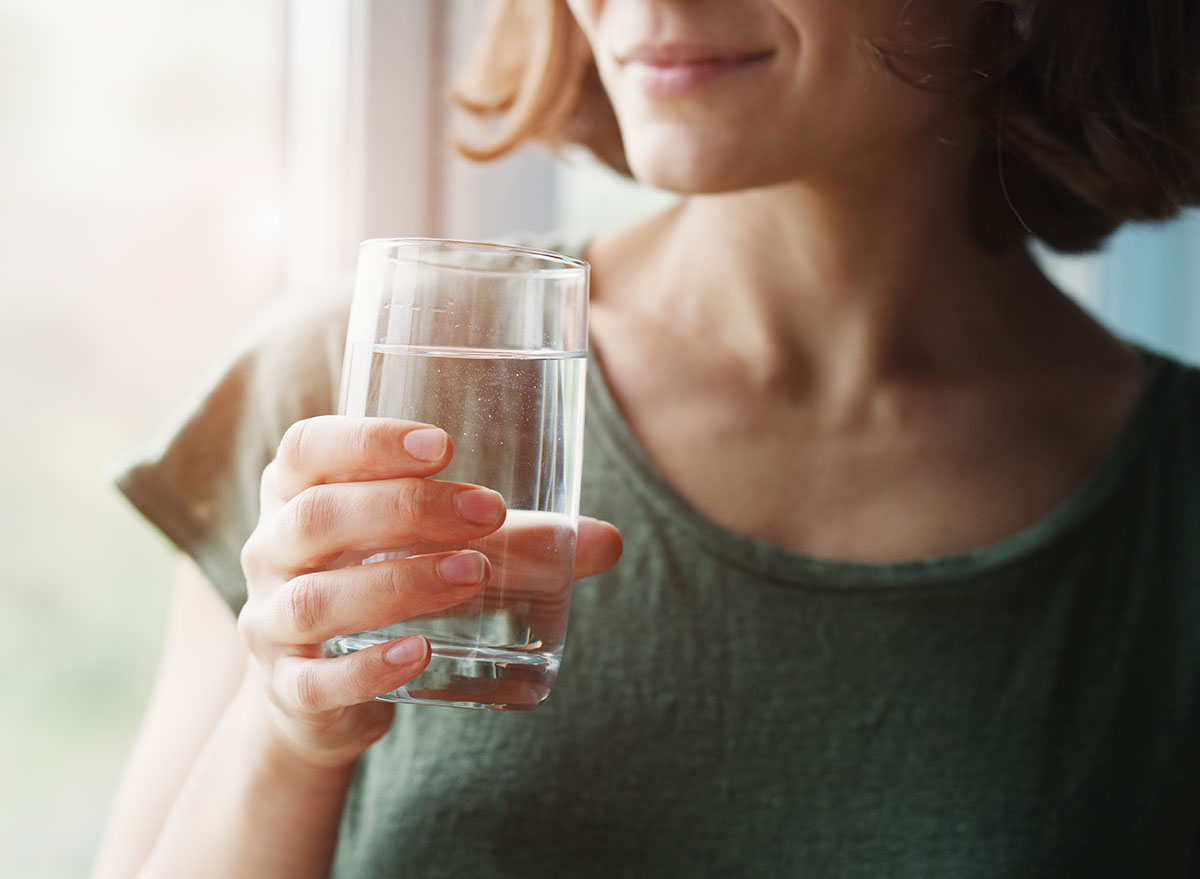
"Drink 8 glasses of water a day" is one of those bits of wisdom that everyone knows but no one seems to know why eight is the magic number. "Eight glasses a day" is like "finish your broccoli," advice we've heard from our parents since we were kids and still mostly ignore.
But there's good reason to listen up: 70-75% of an adult's body weight comes from water, according to the Institute of Medicine (IOM). So, it's pretty obvious how important water is to a healthy body.
But why 8 ounces 8 times a day? And what does that much water do? Knowing the details may encourage you to fill up and drink down.
First, know that 64 ounces (what that recommendation totals to) is kind of arbitrary, an approximation based on national data showing the average daily water consumption of women and men who appear to be adequately hydrated, according to a report from the IOM. Ultimately, the 8-glasses recommendation reflects a very general guideline that is used because, well, it's easy to remember.
"Water needs vary from person to person," says nutritionist Lisa R. Young, PhD, RDN, a professor of nutrition at New York University and author of Finally Full, Finally Thin. "Various factors will affect how much water you need per day, including your activity level, environment, the season, diet, gender, personal health (diabetics need more water), and even medications."
Dr. Young advises her clients to count their glasses but also monitor their bodies, beyond just thirst, for clues that they are not drinking enough water. Knowing how your body functions when well-hydrated can help you recognized when your water tank is getting low. So what happens when you are drinking "enough" water? Read on to find out what experts and science says, and for more water news, don't miss Ways to Make Sure Your Water is Safe to Drink.
You'll keep cool and avoid heat fatigue.

The water you drink provides the moisture in your skin that regulates your body temperature. As your sweat evaporates, your body cools, improving your ability to tolerate heat stress, according to a report in the International Journal of Sports Medicine.
You may improve your exercise performance.
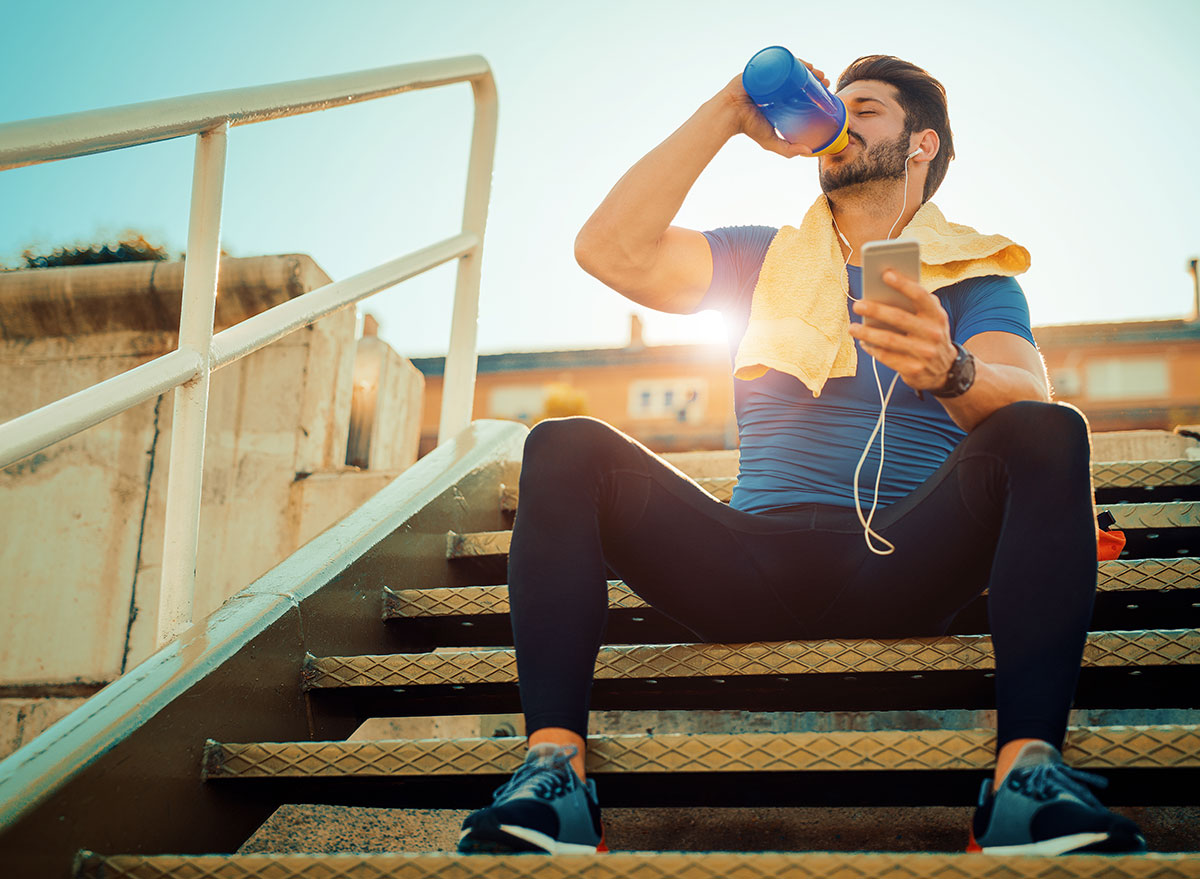
Drinking water throughout your day can pay off when you get competitive. When your body has received that flood of 64 ounces of fluid, it just functions better. Adequate water supplies shuttle to every part of your body, including your muscles, which will contract optimally, just what you need for a rocket-powered serve in tennis or top execution in virtually any sport. By contrast, when inadequately hydrated, your greedy blood vessels pull water from your muscles to protect blood circulation. When that happens, exercise and sports performance suffer. Even just a loss of sweat equal to 2% of your body weight can cause noticeable decreases in physical and mental performance. Losing 5% or more of body weight through sweat during physical activities may decrease your muscles' capacity for work by about 30%, according to Asker Jeukendrup, PhD, and biochemist Michael Gleeson, PhD in their Human Kinetics book Sport Nutrition.
Your urine will look like lemonade.

"One of the best indicators to see if you're drinking enough water is your urine color," says nutritionist Young. "Ideally, it should be a pale color as opposed to a bright yellow."
Also, check how you're going #2. Regularity is a sign of good hydration and good health. "If you tend to suffer from constipation, it can also be a sign that you may also need to drink more water," Young says.
You'll be smarter… and happier!
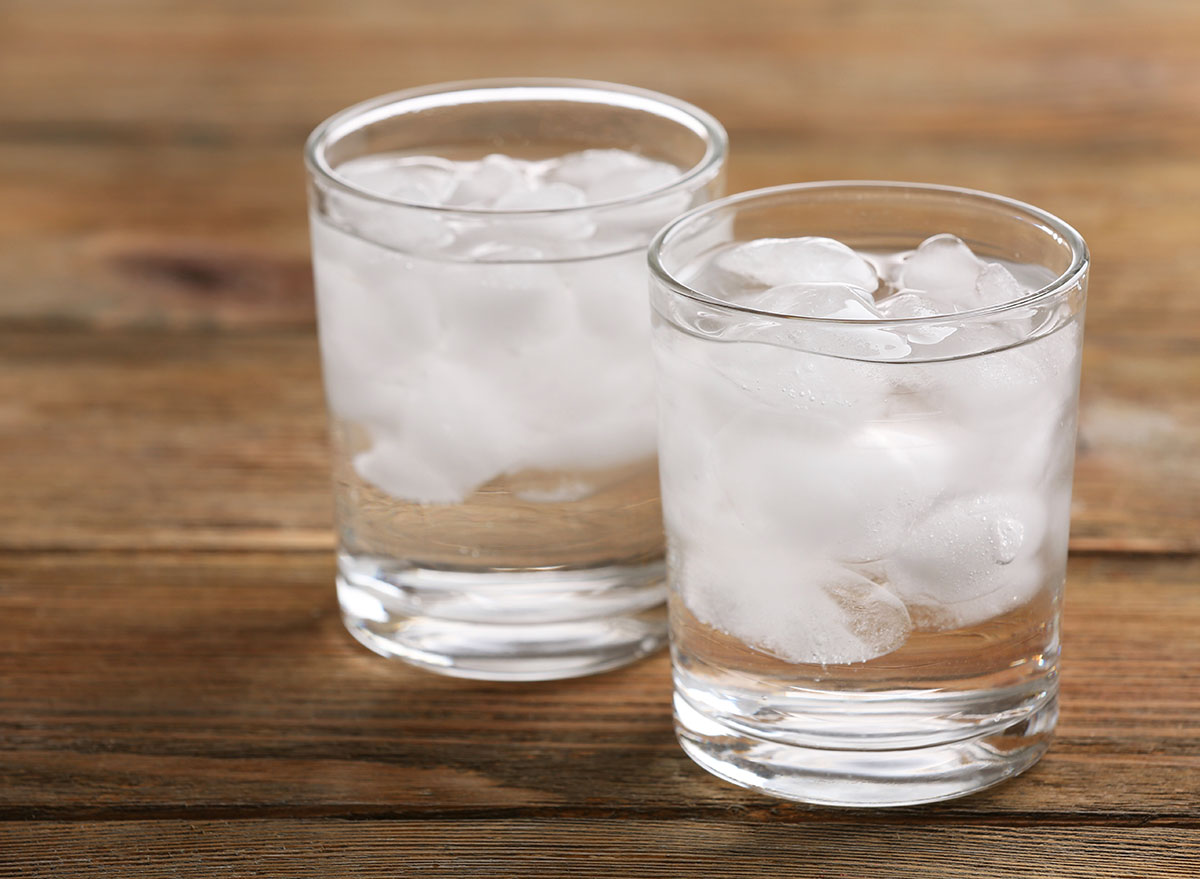
Water (and we're including tea, coffee, juice, and other liquids, but not alcohol) keeps your brain doing amazing things. The IOM states that 75% of your brain's gray matter is made up of water, so staying well-hydrated will ensure it won't shrivel up like a raisin (we're kidding). But check it out: Dehydration can take a toll on cognitive function. A study of Chinese medical students who were denied water to drink for 36 hours found that participants scored poorly on tests of cognitive ability and short-term memory. An hour after they were given 10 glasses of water to drink, a retest showed that their scores had improved. What's more, scores on tests of mood measuring vigor, self-esteem, and attention span dipped during dehydration and returned to normal after drinking the water. In addition to water, you can also improve your brain's functioning with these 11 Healthy Foods That Make You Smarter, According to Doctors.
You may have fewer or less severe headaches.

If you suffer from recurrent headaches or migraines, making sure you are well-hydrated may ease your symptoms. That's what happened in a trial involving headache sufferers in a study in the medical journal Family Practice, published in 2012. About 100 patients were randomly assigned to a control group that received stress reduction advice and an intervention group that was given the stress-busting tips, too, but also was instructed to increase daily water drinking by 1.5 liters, roughly 6.5 cups. Both groups kept a 4-week headache diary and completed a migraine-specific quality of life assessment. Results showed that 47% of patients in the extra-water group reported a 6 or higher on a 10-point scale of perceived headache improvement compared to 25% of patients in the control group.
Your blood pressure may normalize.
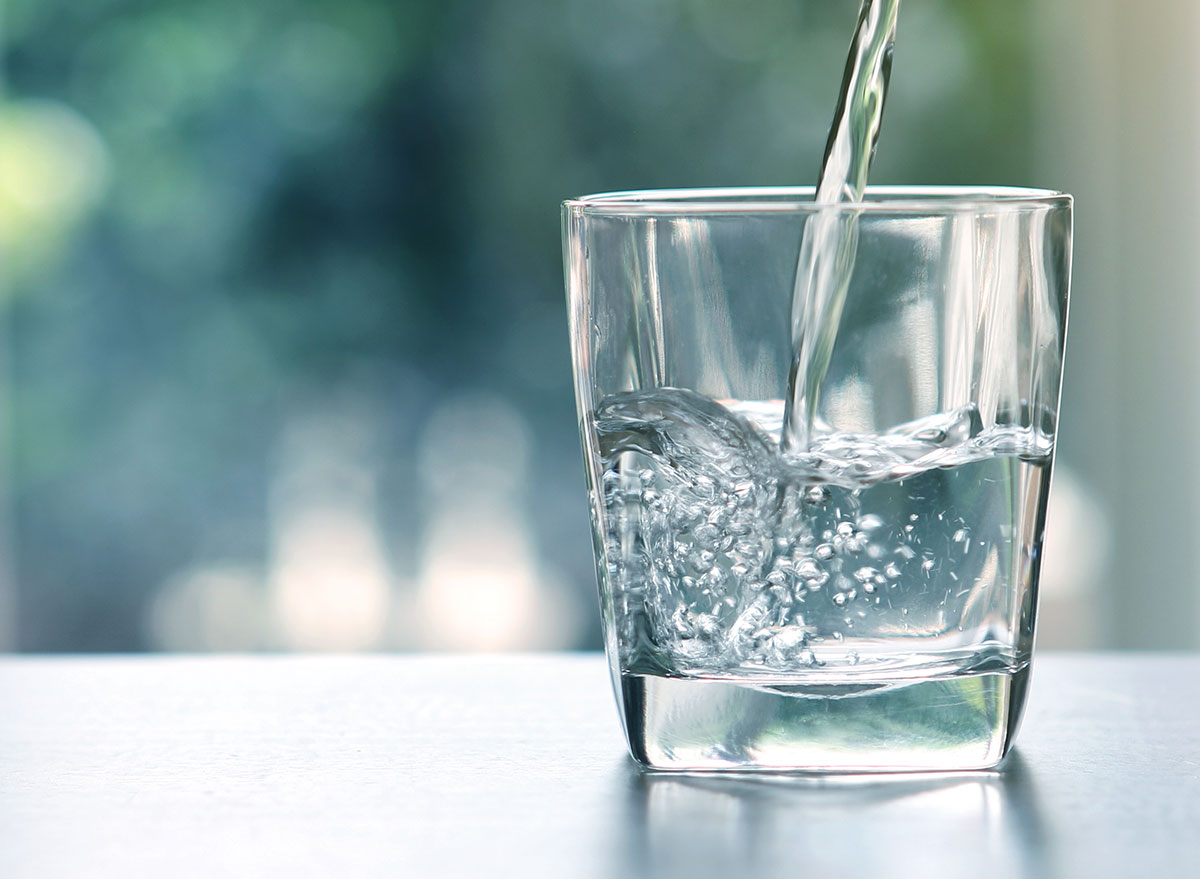
If you have low blood pressure, called hypotension, which is common in the elderly, making sure you drink at least eight, 8-ounce glasses of water daily may help raise your blood pressure to healthier levels, according to the journal Circulation.
You'll lower your risk of developing kidney stones.
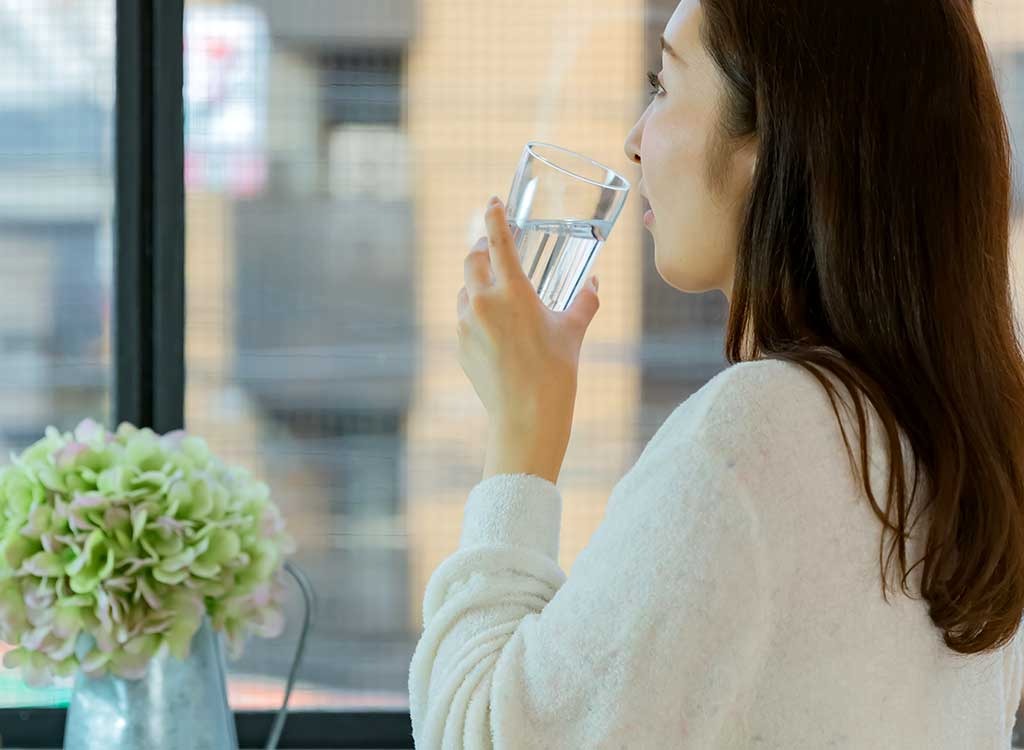
When you drink a lot of water, you naturally create a lot of urine. That's good for your kidneys. The fluid in your urine dilutes minerals and salts that might otherwise crystalize into hard deposits inside your kidneys that can be excruciatingly painful to pass. The easiest ways to avoid kidney stones is to drink plenty of fluids throughout the day, particularly water, according to the Mayo Clinic, which suggests that summertime is prime time to consume a lot of liquid to avoid the stones.
You may lose weight.

Often when we think we are hungry, it's really thirst that's sending us to the fridge. So, keeping a tumbler of ice water close at hand throughout the day can effectively diminish cravings and hunger pangs. Water fills your belly, expanding it and sending "I'm full" signals to your brain. Drinking water strategically before a meal has been shown to reduce the number of calories consumed during that meal. All of this means that drinking water throughout the day is a proven weight loss technique. In a 12-week study conducted at Virginia Tech's Department of Human Nutrition, Foods and Exercise, researchers monitored two groups of dieters. One group drank two cups of water right before eating each of three meals a day, while the other group drank no extra water while following the same low-calorie diet. Results showed that the water drinkers consumed between 75 and 90 fewer calories per meal, which resulted in greater weight loss by the end of the study. The water-drinking dieters lost an average of 15.5 pounds compared to about 11 pounds for the non-water drinkers. "People should drink more water and less sugary, high-calorie drinks," said Brenda Davy, associate professor in the College of Agriculture and Life Sciences at Virginia Tech and senior author of the study. "It's a simple way to facilitate weight management."
Jump here for more This Is How Much Water You Need to Drink for Weight Loss.
